
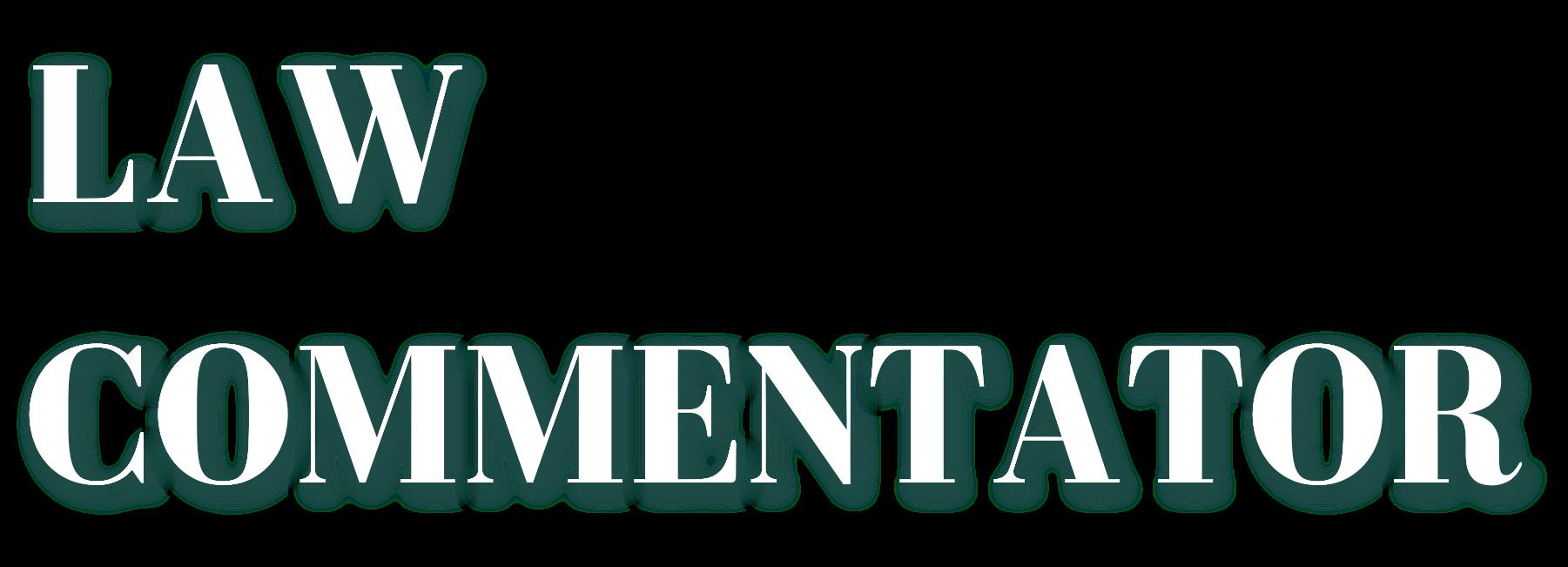
06 06 FALL 2022 ISSUE 06
Photoby BrendaMartinezJaurrieta
I S S U E I N T H I S 02 01 05 08 10 FALL 2022 ISSUE 06 12 13 19 06 EDITOR LETTER IMPOSTER OR TRESPASER? POEMS AWARENESS THE SHADOW I CARRY MEET AND CONFER THE LAW IN ART CROSSWORD YOU'VE GOT A FRIEND IN- COLD CALLING 07 YOU 09 4010 1/2 BAYWOOD
DearSouthwestern,

This yearisofftoagreatstart.Forthestudentsenteringtheir thirdyear,likemyself,Southwesternnowfeelslikehomeand feelslikeacommunitymorethaneverbefore.Beingapartof thevirtuallearningcurve,andthetransitionbacktocampus lastyear,Ioftenfeltdisassociatedfrommyschoolandmy peers.Forthefirsttimeinthethreeyearsoflawschool,Iam sittinginclassroomslearningandenjoyingmaskless,real-life, facetofaceconversationswithmyprofessorsandpeers!
SeeingfriendsenjoytheSouthwesternHomecomingeventthis semestergavemesomuchjoy.AlthoughIwasnotableto attendHomecoming,seeingthecommunitythatIamapartof enjoythiseventtogetherremindedmeofwhatapositive,lively environmentweasstudentsshare.Wearesoluckytobeableto buildourskillsandgrowwiththisgroup.ThisissueofLaw Commentatorembodiesthatcommunityspiritandyouwill learnaboutthelivesofmanyfabulousstudentsthatmakeup thisgroup.
FromallofusontheEditorialBoard,wehopethatyouenjoy thisread!Thankyoutoourcontributorsandfacultyadvisorsfor makingthisissuepossible!
Editor in Chief
1
JessicaSmith
IMPOSTER OR TRESPASSER? FINDING YOUR SEAT IN THE LAW SCHOOL CLASSROOM
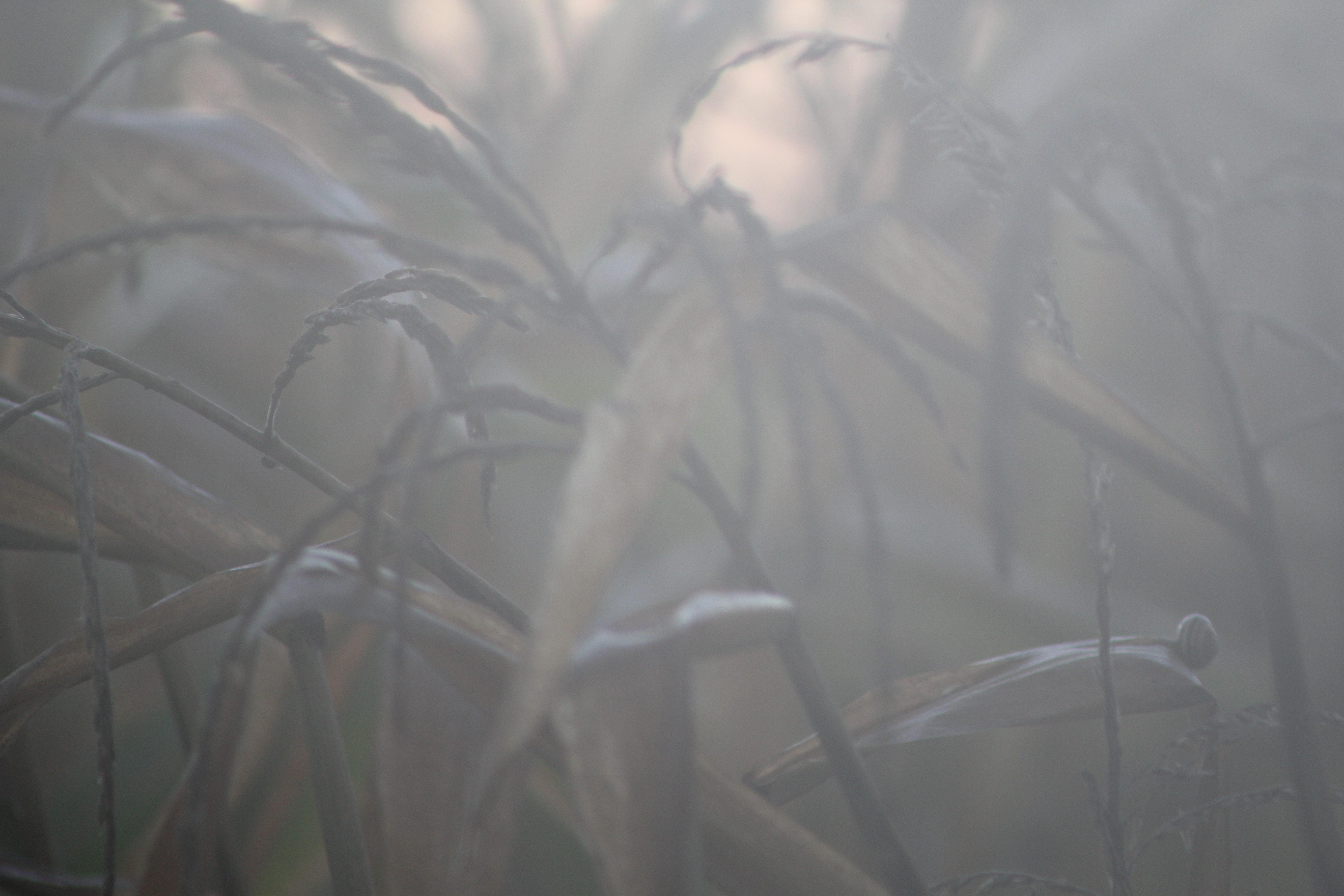 By Emily Karsik
By Emily Karsik
If you have been in law school for any amount of time, chances are you have probably heard the term “imposter syndrome” come up at least once in a conversation with other students Whether it’s sitting in class listening to students around us ask better questions than us (or so we think), or sitting alone studying for an exam, it’s common to think some iteration of “Am I good enough to be here?”
Starting law school, I remember thinking imposter syndrome was a psychological hoax an excuse used by lazy students who didn’t actually study for class and then got low grades as a result But after my first semester in law school, I found myself at the back of the curve in every single one of my classes and it certainly wasn’t for lack of effort
As a result of my fall grades, I was faced with a decision to either shape up or ship out for the spring semester I chose to remain in law school that semester even though the stakes were incredibly high if I failed to meet certain metrics (grades, cumulative GPA, etc.), I would be “academically disqualified” from the school.
2
During that spring semester, I found myself under the immense pressure of doing better constantly hanging over me while also asking myself, “Will I make it? Am I doing better enough?” I would listen to other students’ questions during a class lecture and think to myself, “Wow, that was a good question I didn’t even think to ask that Why didn’t I think of that? Does that mean I really shouldn’t be here, in law school?”
And, while studying for midterms and exams, I would think “I bet this material is making sense to everyone else in my class and I’m the only one who won’t hit every single issue on this exam ”
These kinds of thoughts led me to question my very journey to law school itself. Sure, I didn’t get a perfect score on the LSAT The only lawyers I knew at the time were those I had worked with, and I learned about the law school admissions process only as I actually went through the process of applying to law schools I didn’t know about law school ranking systems and I remember learning about ABA 509 disclosures as I sat across from an admissions counselor at one of the law schools I was touring Let’s just say Yale and Harvard certainly weren’t clamoring for me to apply and join their law school ranks But should I have even gotten into the schools I did apply to?
It started to dawn on me that perhaps nobody including myself was immune to imposter syndrome
And yet, at the same time, I looked back on my all my years of legal work experience prior to coming to law school and could not reconcile my thoughts of inadequacy in the classroom with my capabilities that were present in my pre law school legal career
How could I have been so capable working in the legal field yet somehow not be capable enough to go through law school? Weren’t at least some of those legal skills I had learned and used in the workplace and in prior legal schooling transferable to my law school education?
It wasn’t until this past summer that I learned perhaps what I had felt throughout my 1L year, and sometimes continue to feel even now, might not be imposter syndrome at all
During my externship this past summer, I attended a training lead by Dr Arin Reeves on diversity, equity and inclusion As part of the training, she used a term I hadn’t heard before: trespasser syndrome. As she explains it, [Imposter] syndrome was primarily rooted in successful people feeling like their success was due to luck, connections, or something other than their talent An imposter is a person who pretends to be someone else to deceive others, especially for fraudulent gain A trespasser is someone who enters spaces they are not supposed to be, where they do not belong A trespasser isn’t afraid of being discovered for who they really are; they are afraid of being treated like they don’t belong where they are [1]
[1] Reeves, Arin Trespasser Syndrome
https://mailchi mp/nextions/trespasser syndrome Accessed 3 Oct 2022
Will I make it? Am I doing better enough?
3
Getting into law school was not due to luck or connections on my part While I did have people in my corner that were cheering me on and sharing practical guidance with me from their own law school experiences, my journey to law school was primarily rooted in prayer, studying for two LSAT exams, hands on legal work experience and carefully crafted applications So, when I eventually did make it into the law school classroom, I wasn’t worried that other students or professors might realize that I only got into law school because of who I knew Instead, my doubts about my place in the classroom centered around not being good enough to stay there
As Dr. Arin Reeves explains it, trespasser syndrome is prevalent among women, people of color, and others from underrepresented groups because “the harsh reality is that [we] know that luck and connections weren’t available to [us] ”
The fears of trespasser syndrome are not rooted in others learning we aren’t really as talented as we said we were Instead, trespasser syndrome is “rooted in a fear that no matter how talented you are and how hard you work, you will be treated like you are trespassing, like you do not belong ”

As a first generation law student, this distinction was especially helpful for me Dr Arin Reeves explains, “Trespasser Syndrome is also a more empowering description of what people from underrepresented groups experience” because it acknowledges the difficulties that person had to overcome in order to earn their seat at the table. What many of our colleagues might have received due to luck or connections, others earned through grit and perseverance Beach
I see some of this in my own law school journey As I reflect back on my last two years of law school, I realize some of my doubts and questions were not because I thought I didn’t have what it takes to succeed Instead, I wondered if what I did bring to the table would be enough to be as successful as my classmates, particularly in a profession that has historically been exclusionary rather than inclusive
Even now, as I apply for post law school jobs, I am tempted to eliminate myself from certain job options because my resumé and transcripts might look different than some of my classmates. But I’m reminded that I have the same talent and work ethic as others to be successful Thus, instead of shying away from those job opportunities because my resumé and transcripts look different, I can turn those pieces into a talking point with recruiters and tell a story my story about what it means to persevere and overcome
As we press ahead in this school year, let’s remember that we all are in this law school space because we put in the work to be here Perhaps the journey was more arduous for some of us than it was for others, but right now we have a seat at the table What a privilege! Let’s not squander it on self doubt and second guessing Instead, let’s recognize, as Dr Reeves said, “[E]ntering the space is an act of empowered courage ” and allow that realization to fuel us in our school efforts and also use it to encourage one another and help each other move forward
12
04
Vol
|
4
POEMS
SW students shared some beautiful poetry. Please enjoy their thoughtful words on the following pages.
5

6
B y A s p e n M e d l e y
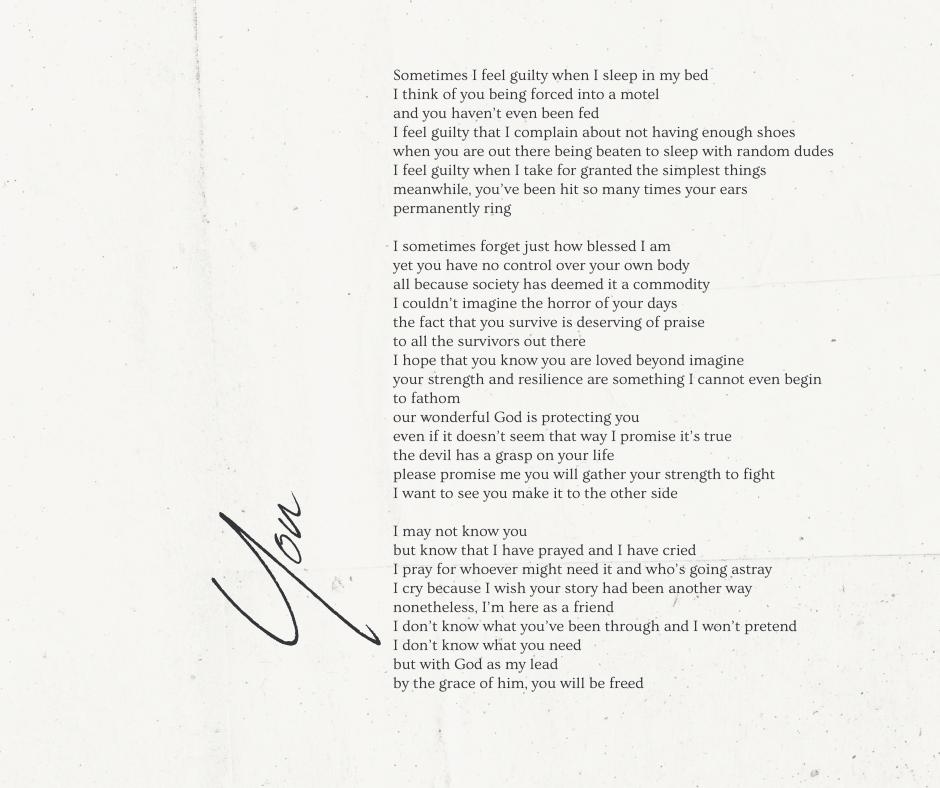
7
B y A s p e n M e d l e y
THE SHADOW I CARRY

Myanxietyhasmanydifferentshapes,pathsandfaces. Eachtimeitcomesisdifferentfromthelast. ItseemsthatIcanalwaysrecognizeit,butneveranticipateitsarrival.
Sometimesitappearsinthereflectionofmylaptopscreen.
Ashadowyfigurewhosignalsimminentdoomwithquestionslike "whatamIevendoing?" "whatwillhappenifIcan't?"
Othertimes,itoozesoutofmyphysicalitythroughpokesandpinchestotellmeIamnot enoughandprobablywillneverbe.
It'scaughtmeinthedark, Itcreepsupalongsidemythoughtstoremindmethatit'sbeencarriedonthrough generations.
Justtoreassureme,itbringstheshadowthatfollowsmygrandmotherandmymother beforemeasiftosay,"I'mnotgoinganywhere."
Itinterjectsinthemiddleofaconversationwithfriends. Itscoarsevoicewhisperingaharshtunethatawakensmyself-doubt. IftheywokeuponedayandrealizedIwasn'tthefriendthey'dhopedfor,whatwouldIdo?
MyanxietyistheretoholdmewhenI'mmovingtoofast, Itsgriptightenoughtoprovidesecuritybutalsotightenoughtoasphyxiate.
Thegroundbeneathmethatholdsmesteadybutalsosinksinunderme. AvastoceanwhereIhavelearnedtofloatbutconstantlyfeelasifI'mdrowning.
I'mnotgoinganywhere,itremindsme. I'mnotgoinganywhere,Isayback.
6
8
4010 ½ BAYWOOD STREET
BY LAUREN ROMERO
One bedroom, one bath, a tiny kitchen and half a dining room. The stucco on the ceiling, the wooden doors that never seemed to close all the way
The home that raised three generations No te acuerdas abuelita?
The heavy red door that made the home feel like a fortress, the small garden where you tended to all your roses No te acuerdas abuelita?
The metal coverings on the windows that would rattle when the train passed The cold checkered tiles that you'd never want me to step on in the mornings
No te acuerdas abuelita?
Though it was small, you made it a home. You raised your children there and their children after Until slowly, it slipped from your hands
When they told you you lived on the wrong side of the tracks, Even put barriers to keep the neighborhood from spilling into the main streets
That is, until the neighborhood became the place to be
"Atwater, not the best neighborhood, but just a short drive away from Silverlake, Hollywood and Los Feliz!" is how bloggers, influencers, and writers describe it

One by one, your neighbors and friends left
Se vendio la casa del Señor, de la Señora
The houses began to change and soon, yours did too.
"FOR SALE" the sign read They took your garden, poured cement over it
Painted the house white and laid ceramic tile over the steps
The church you'd been going to for years, the clerks at the small food shop down the street, no longer at your reach. The love poured into the one bedroom, one bath, a tiny kitchen and half a dining room
No te acuerdas abuelita?
What they tell you about gentrification is that it'll improve the safety of the neighborhood, it will raise the value of the houses and it will lead to more resources for the community. What they don't tell you? Those things will not be for you
9
COLDCALLING
 BY LORI ARMINE SINANIAN
BY LORI ARMINE SINANIAN
Prior to starting law school, I never heard of the “Socratic Method.” When I was accepted to Southwestern Law School, I felt an immediate need to pick up “legal lingo” to get a head start on what I was about to embark on. As my summer was coming to an end, and the start of law school was quickly approaching, I was selective about taking peoples’ advice regarding law school. I knew I was learning a second language (how to think like a lawyer), because I had been told many times. I knew I was going to come across Latin phrases and terminology because I had been told many times, too I did not know about the “Socratic Method,” because I had been told zero times. In all honesty, my initial thought was, “Does it have anything to do with Socrates, the philosopher?” I attempted to dismantle the definition and learned that the method is also commonly known as “cold calling.” I daydreamed about how cold calling would take place in a classroom setting. I became fixated on the potential dialogue that could occur between a professor and student. I romanticized the idea of how a cold call would go because I could not stop thinking about what was forthcoming. The time I had spent trying to understand the practice of the method was reassuring, but only to an extent. Frankly, I did not know what a cold call was until it happened.
Preceding my first ever cold call, I couldn’t recall how I physically felt, other than the fear of being "chosen.” During the cold call, I remember slowly moving forward to the edge of my seat and needing to think on my feet. I felt alert, ready, and engaged, and even then, I was not able to answer the cold call "correctly.” But in that moment, I also realized that my physical reactions did not match my thoughts. I had an instantaneous flashback to William Blake, a poet from the Romantic Period, who at one point focused his writing on the “inner child” we all have within us. In my moment of cold calling, I was reminded of my inner child, experiencing something for the first time. Finally, to some extent, I was able to define "cold call," something I tried to do months before starting law school. Now that I have an idea of what cold-calling is, I realize that the stigma around it needs to be reframed. If we don’t reframe the way we think about it, the adjusting period will take more time As 1L’s, we know now that time is of the essence. We also know very well, too, that “time is of the essence” has two meanings, thanks to Contracts.
YOU'VEGOTAFRIENDIN-
10
To reframe how we think about cold calling, it is important to take a couple of steps back to remind ourselves what the point of cold calling actually is. Consider the following: For a “successful” cold call to occur, one needs to be prepared The preparation process might look different for everyone. Whether you IRAC before class, review your notes, listen the recordings of the class, speak to your TA’s or professors, students are more likely to have a “good” cold calling experience because the preparation held them accountable.
A successful cold call also requires an honest conversation. Although that sounds scary, it depends on how we approach the cold call. Reframing our perspective of cold calling will alleviate the fear. For example:
1.“It’s just a conversation” perspective: dialogue which feels like just two people having a conversation.
2.“OMG, it feels like tunnel vision” perspective: monologue with no end in sight.

If we approach cold calling with the proper preparation, it is possible the experience will feel much more comfortable as opposed to the sudden tunnel vision we commonly feel during an interview.
The humiliation we experience during an “unsuccessful” cold call should transfer into humility thereafter. Cold calling can be scary during the first and even second time. But if cold calling is scary for a longer time, that might be a good indication that your approach needs reframing.
11

12 BYGERMANMONROY
By German Monroy

The Law in Art: Four Works Depicting the Legal Profession

13
Despite its reputation for being analytical, austere, and formal, the legal profession has a strong relationship with art. Few professions commission more self portraits than courts and Law Schools do for their judges and eminent legal scholars.

Architects have laboriously worked to design courthouses with the perfect mix of modernism and antiquity. And the genre of courtroom sketches has become so popular in illustrating courtroom dramas that it has developed as its own unique artistic field.
Outside the above instances, however, we don’t see too many works of art depicting the legal profession. Despite the scarcity, there are some notable works that have depicted the legal profession and this article will introduce you to four of them.
14
Laying Down the Law
by Edwin Landseer
As one can gauge from its title, the first work takes a comical jab at the legal profession. Edwin Landseer was known for his paintings of animals, especially dogs. In this artwork, he uses his penchant for painting dogs for a satirical effect. In this painting, the honorable judge is depicted as a French poodle Using his paw, he judiciously points out the relevant passage in the text Various species of dogs, meant to represent different members of the legal profession, flank the judge on both sides
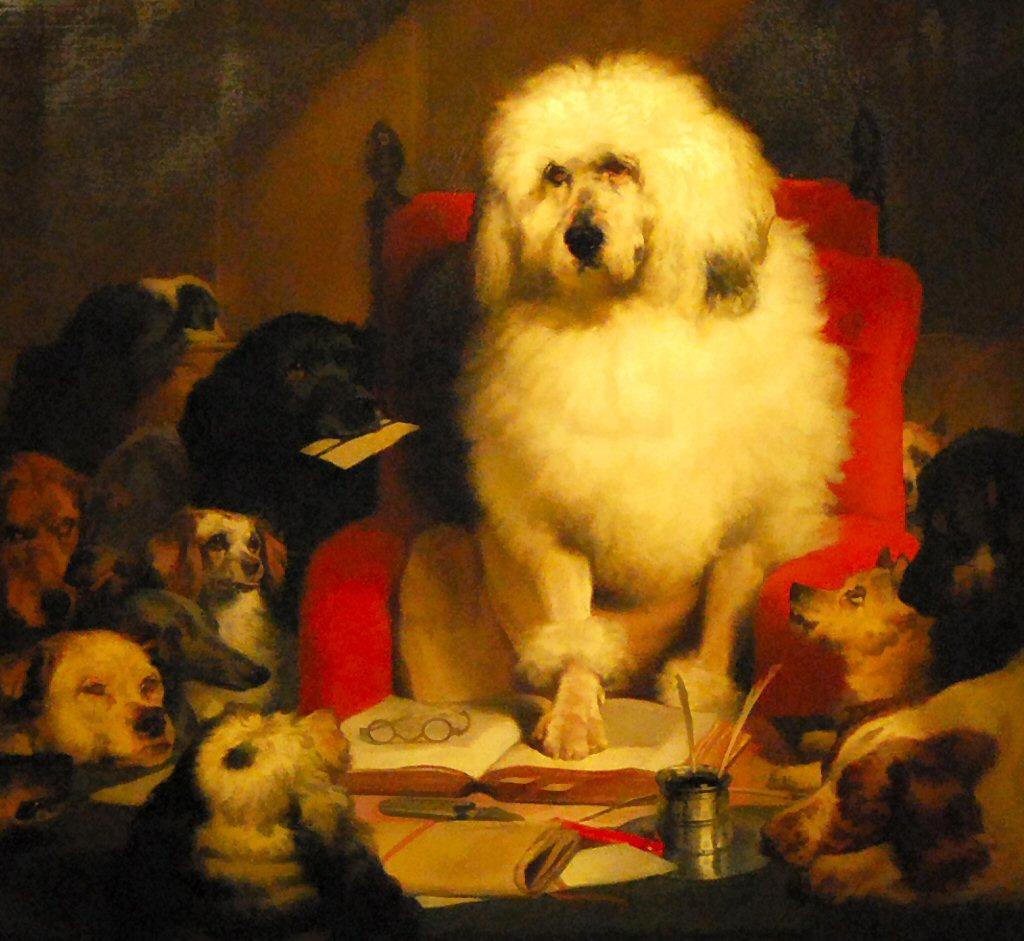
If you think that this is a harmless shot at the legal profession, that’s because it is When Landseer first displayed the painting, it was praised for its satirical bite but also for its restraint In other words, the jab hit its mark but not too hard The same, however, cannot be said about the next two works.

15
God, Law
 by Jean-Michel Basquiat
by Jean-Michel Basquiat
Our next work of art is from the New York born street and pop artist Jean Michel Basquiat God, Law is an early work of Basquiat, but still displays his characteristic use of simple words and images in a rough and graffiti like style
The work shows perhaps the most famous symbol of law, the scales of justice Under the scales, Basquiat includes a money symbol and the words “God” and “law ” In my opinion, Basquiat has joined symbols and words commonly associated with ideas of law, justice, God, religion, money, and greed, but leaves it to the audience to make their own connections and conclusions. Some, however, think the message is clear; the art writer Alma Rodriguez states “ … Basquiat is depicting a corrupt, materialistic world where law and religion are heavily influenced by material wealth.”
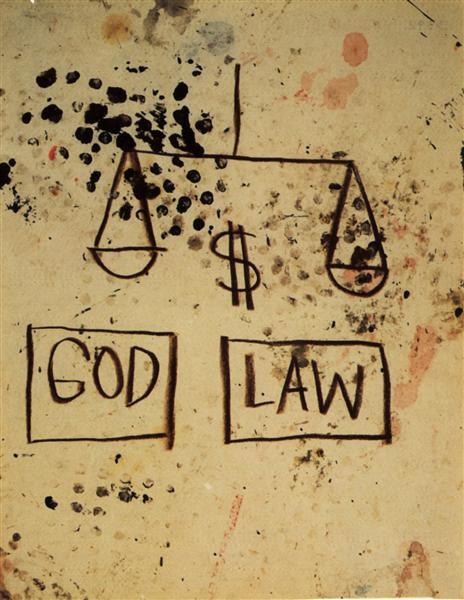
16
The Jurist by Giuseppe Arcimboldo
Our third artwork was painted in 1556 by the Italian painter Giuseppe Arcimboldo. The Jurist is characteristic of Arcimboldo’s style of creating images of people from exquisitely detailed and assembled collection of flowers, vegetation, or other materials. The sitter is composed of the lawyer’s tools of the trade. Casebooks protrude from the jurist’s belly, and the neck appears to consist of a stack of papers. Most noticeable is the jurist’s face, a hideous composite of two fish, a bird, and a chicken; the construction is intricate and a tour de force in realism Technical prowess aside, I think the grotesque face says it all and we know exactly how this artist feels about the legal profession


17
Law Student (Young Lawyer)
 by Norman Rockwell
by Norman Rockwell

For the last work of art, I have chosen a painting by the American artist Norman Rockwell. It is, I think, one of the most flattering depictions of a lawyer in art. The painting shows a law student hunched over a barrel as he studiously reads his casebook. His facial expression is some combination of intense focus and minor confusion, an expression familiar to all of us. Above the student’s humble workstation are pictures of the student’s hero Abraham Lincoln. The depiction, then, is of a young lawyer as a humble, hardworking student who is guided by the example of “Honest Abe.” I think this noble portrayal of a young lawyer is a nice foil to Arcimboldo’s jurist. In both paintings there are truths and lies; embellishments and exaggerations; the despicable and the admirable.
So what’s the verdict? What do these artworks tell us about the legal profession? The answer is complicated While the four artworks vary in style, execution, cultural context, time period, and message, all of them provoke a response, and all of them urge us to reflect seriously on the nature of the legal profession
18


19 crossword Across 1. Where scientists work 4. Place to store valuables 8. In awe 14. Singular 15. Broadway show 16. Intellectually stimulating 17. Thoroughfare near 45 across 19. Dressy top 20. Host 21. Garland from Hawai'i 22. To be, Sp. 23. African desert 25. Shopper's vehicle 26. Library namesake 32. Hedge fund whiz 35. , myself, and 36. Ava DuVarney CW series 37. Let go 40. Meals with pastry crust 42. Step in breadmaking 43. Pigsty or Bic, for one 44. SSW's opp. 45. Here 50. Where the sun rises 51. Coral named for its shape 55. Business end? 58. Park your carcass 59. Make amends 60. Roger or Peter 62. Library building 65. Get there 66. And others, lt. 67. metal (rock genre) 68. Hurled 69. Not hard 70. Guitar legend Paul Down 1. Home Depot competitor 2. In Philosophy, the soul 3. Bring up wind 4. Circle 5. Muhammad or Laila 6. Not close 7. Look at 8. Brooks or Einstein 9. Rebel 10. Guacamole ingr. 11. Greek god of thunder 12. Otherwise 13. One who colors fabric 18. Official stamp 21. "Well, di dah!" 24. Gets in the crosshairs, with "at" 25. The White Sox, briefly 27. Fancy that! 28. Puppy's cry 29. T bone region 30. Good sign or bad sign 31. Shine partner 32. Old flat bottom boats 33. 64 down Rival 34. Fromage hue 38. Put away groceries? 39. Glue, e.g. 40. Housecat, for one 41. Small bills 43. LA. wintertime 46. Lingered 47. Repair approx. 48. Exclamation when you get cold called 49. Intergov't military alliance 52. Center or main point 53. Easily twisted 54. Bird homes 55. Key to exam writing 56. Keeper gov't and historical docs 57. Honda m'trcycles 61. Small amount 62. Honey maker 63. Major Entertainment Rep. Co. 64. Vegas Answer on Instagram @lawcommentator
By Michael Campos

Haveanideaforanopinionarticle? Arecipe? Apoem? Careeradvice? AcademicAdvice? LegalOpinions? Wewantyourvoiceheard! We want your thoughts! Your voice is valuable, and your creativity should be appreciated! Why submit? Send us your ideas at lawcommentator@swlaw.edu 20
CONTACT US: l a w c o m m e n t a t o r @ s w l a w . e d u LAW To learn more , visit our CANVAS page. EDITOR-IN-CHIEF JESSICA SMITH SUPERVISING EDITOR DESIREE RUIZ-ALFARO EDITOR MICHAEL CAMPOS COMMENTATOR EDITOR LAUREN ROMERO PRODUCTION COORDINATOR JOYCE JEONG PRODUCTION MANAGER EMILY KARSIK

THE OFFICIAL SOUTHWESTERN STUDENT PUBLICATION ISSUE 06 // FALL 2022




 By Emily Karsik
By Emily Karsik





 BY LORI ARMINE SINANIAN
BY LORI ARMINE SINANIAN











